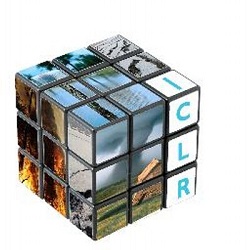 Tuesday, April 23, 2024
Tuesday, April 23, 2024  Tuesday, April 23, 2024
Tuesday, April 23, 2024 

Beginning on June 19, 2013 southern Alberta experienced extensive loss and damage from riverine flooding. More than 250 mm of rain fell over a 36 hour period in the foothills west and southwest of Calgaryand began rapidly flowing east through the province’s river valleys bringing destruction across southern Alberta. This was the largest riverine flood damage event ever experienced in Canada, with insured damage exceeding $1.7 billion and total economic damage of approximately $6 billion.
Disaster mitigation and policy experts from the Institute for Catastrophic Loss Reduction (ICLR) are available to answer media inquiries concerning the floods. Noted ICLR experts below are available to answer questions relating to the impacts of the event (physical and financial), progress to date on various provincial flood mitigation efforts and whether Alberta is prepared for the next major deluge.
Paul Kovacs is founder and Executive Director of the Institute for Catastrophic Loss Reduction at Western University. He is Canada’s leading authority on insurance, natural hazards and climate change and has been a contributing author to numerous international and Canadian reports on reducing the risk of loss from flood, earthquakes, severe wind and wildfire. He has written more than 200 publications and articles and is a passionate champion for insurance, disaster resilience and adaptation to climate extremes.
Click here to sign-up and receive the Weekly Round Up in your inbox every Saturday
Dan Sandink is Director of Research for ICLR. He has led a significant portion of the Institute’s urban flood risk reduction work, and has authored or co-authored dozens of reports and articles on topics related to urban flooding and natural hazards. His work has focused on public risk perceptions, adoption of lot-level practices, insurance, climate change adaptation, lot-level flood protection technologies, inflow/infiltration, construction codes, and mitigation of wildland-urban interface fire and high wind risk for low-rise residential buildings, among other topics.
Both Kovacs and Sandink are authors of the ICLR report Best practices for reducing the risk of future damage to homes from riverine and urban flooding: A report on recovery and rebuilding in southern Alberta, available at www.iclr.org
Glenn McGillivray is Managing Director of ICLR. As an insurance writer and commentator, his work has been widely disseminated across Canada. He has written more than 225 magazine and journal articles, publications and blogposts on a range of issues. He has appeared on CBC’s The National and The Exchange, CTV’s Your Morning and Power Play, CBC Radio’s The Current and CP24, as well as a number of other television and radio news and interview programs. Additionally, he speaks and lectures regularly on subjects related to the area of property and casualty insurance and reinsurance and natural hazards.
Sophie Guilbault is Manager, Partnership Development. She completed her Masters at Tulane University in Disaster Resilience Leadership Studies and holds a Master of Architecture degree from Laval University. At ICLR, Sophie is leading the Cities Adapt research program, ICLR’s Quick Response Grant Program and MEOPAR research on hurricane warnings in Atlantic Canada. Sophie can provide interviews in both English and French.
Established in 1998 by Canada’s property and casualty insurers, ICLR is an independent, not-for-profit research institute based in Toronto and at Western University in London, Canada. ICLR is a centre of excellence for disaster loss prevention research and education. ICLR’s research staff is internationally recognized for pioneering work in a number of fields including wind and seismic engineering, atmospheric sciences, water resources engineering and economics. Multi-disciplined research is a foundation for ICLR’s work to build communities more resilient to disasters.
